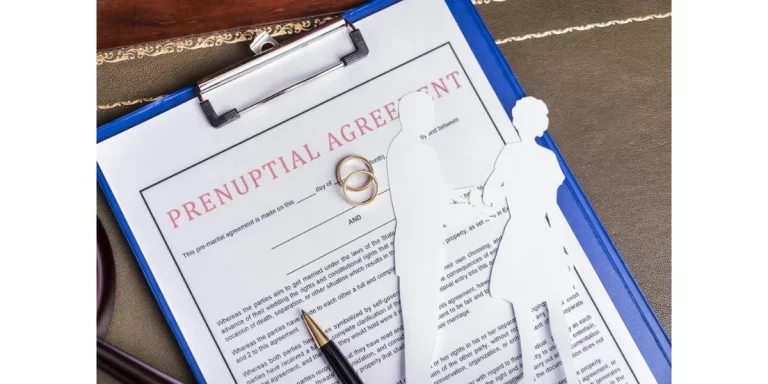When you are preparing a will, your lawyer may suggest that you consider setting up a testamentary trust will.
Changes to the taxation system, an ageing population and ever-increasing divorce rates have meant traditional estate planning has been revolutionised over the last decade.
Where people used to think no further than creating a simple will, many individuals are now considering more sophisticated estate planning strategies. These strategies carry the benefits of tax minimisation and asset protection.
One estate planning option is to set up a testamentary trust will.
What is a Testamentary Trust Will?
When looking at your estate planning options, you may be advised that a ‘Will with a Testamentary Trust’ is more suited to your family’s financial situation than a ‘Standard Will’.
A standard will is quite a simple document, laying out the will-maker’s chosen executors, beneficiaries and desires for the distribution of their assets after they pass away.
While relatively simple to draw up and execute, a standard will does not offer any protection to the assets of the estate, nor does it provide any tax benefits.
A testamentary trust will is a will that establishes a trust at the time of the will-maker’s death. It is designed to protect the will maker’s property and assets by making the trust the owner of the assets rather than individual beneficiaries.
Setting up your will in this way offers flexibility around the distribution of capital and income that is generated by the trust’s assets.
There are two common types of Testamentary Trusts set up for the above purposes.
The first is a Discretionary Testamentary Trust. In this type of trust, the executor can give the beneficiaries the option of whether they would like to take all of their inheritance via the trust of just part of it. The primary beneficiary also has the power to remove or appoint trustees. They can also appoint themselves to manage their own inheritance within the bounds of the trust.
The second is a Protective Testamentary Trust. In this setup, the beneficiary must take their inheritance via the trust, and they cannot appoint or remove trustees. This type of trust is a good option where the beneficiary is deemed not in a sound position to manage their inheritance. This may be due to several factors, including being underage, suffering from a disability or having habits that may diminish the assets under the estate.
Benefits Over a Standard Will
There are several benefits to setting up a testamentary trust which differ from a standard will.
Benefits of a testamentary trust include:
- Asset protection in the event of family law property proceedings or potential bankruptcy of one or more of the beneficiaries.
- They are flexible in their arrangement and can be modified to suit the changing needs of the beneficiaries.
- Trusts can be set up to last for 80 years.
- If set up correctly, trusts can have significant tax advantages.
Also read: How to Get a Copy of a Will
How To Set Up A Testamentary Trust
Setting up a testamentary trust in Australia involves a series of legal steps. Here’s an overview of the process and what’s generally involved:
- Assess Your Need: Consider if your finances are complex enough to necessitate the use of a trust and if tax benefits are a priority for you. Think about your beneficiaries and determine if you want to safeguard assets for minors, anyone who is vulnerable, or if you want to have control over how inheritances are utilized.
- Consult an Estate Planning Lawyer: Obtain professional advice to ascertain if a testamentary trust aligns with your particular situation. Your lawyer will assist you in structuring the trust with terms that are suitable and take your goals into account.
- Decide on Trust Details: Select a trustworthy individual, family member, or professional trustee company to be responsible for the management of the trust. Explicitly identify your beneficiaries along with their potential share of the trust. Determine which assets will be placed into the trust. Establish guidelines for how funds may be used and when your beneficiaries can access them.
- Draft Your Will: Your lawyer will assist in drafting your Will which will include the provisions that establish the testamentary trust.
- Sign Your Will: Adhere to the strict legal requirements for signing a Will in Australia (which includes witnesses) in order to guarantee its validity.
- Store Your Will Safely: Store your Will in a safe location, while ensuring your executor can locate it following your passing.
- Regular Review: Periodically revisit your Will with your lawyer to ensure it remains in line with any life changes you may have or any changes that may have occurred to tax laws.
Protect Your Loved Ones with a Testamentary Trust
Crafting a testamentary trust is a thoughtful way to manage your assets and ensure the well-being of your family after you’re gone. It offers potential tax advantages, safeguards for vulnerable beneficiaries, and customized support for your loved ones.
At Justice Family Lawyers, our experienced estate planning specialists will guide you through every step of establishing a testamentary trust that aligns with your unique goals. We understand the complexities of estate law and are passionate about creating solutions that provide peace of mind for you and your family.
Contact us today to schedule a consultation and discover how a testamentary trust can secure your family’s future.
Principal of Justice Family Lawyers, Hayder specialises in complex parenting and property family law matters. He is based in Sydney and holds a Bachelor of Law and Bachelor of Communications from UTS.






